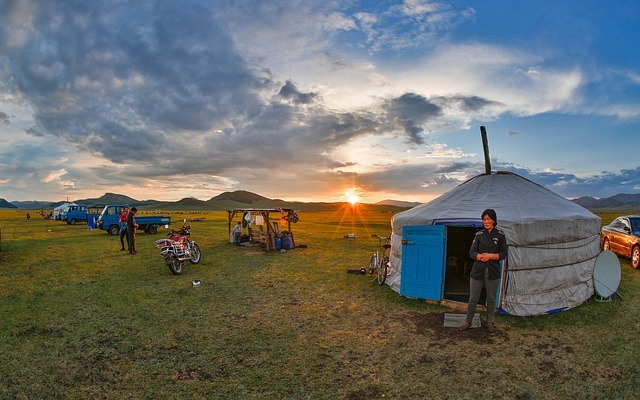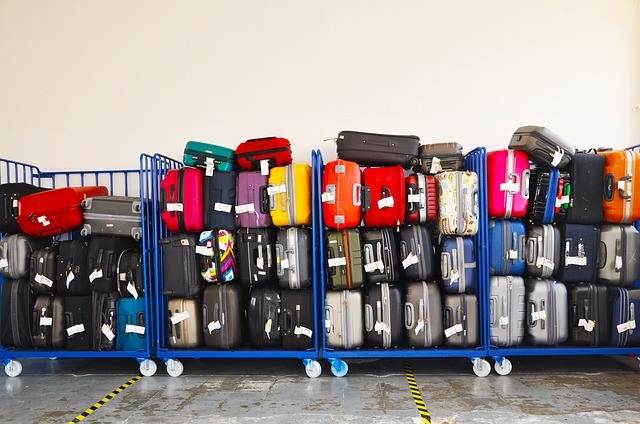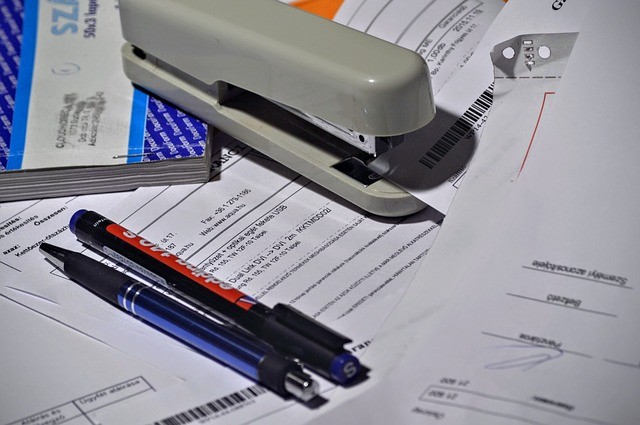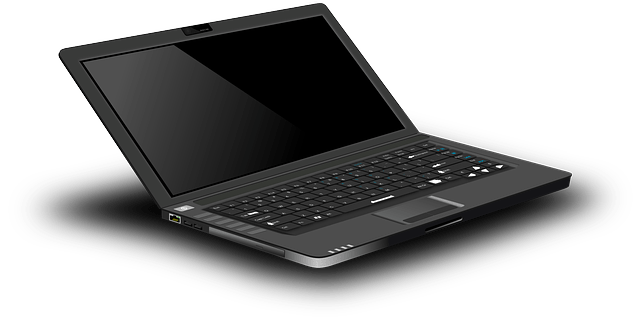After my recent post about digital nomad programs, I realized I really hadn’t written all that much about the lifestyle I’ve enjoyed for the last several years. Whether you’ve thought about becoming a digital nomad or have wondered if you can do it yourself, consider this a collection of the most frequently asked questions about becoming a digital nomad, answered with a no BS attitude. Here we go…
What is a digital nomad?

A person who works digitally, lives nomadically, and travels extensively. Add in romantic notions about working from the beach at your own risk — more likely, they’re working from a hotel, a temporary apartment, or an Airbnb.
Digital nomads may have a home base they return to for work or family, but the ‘nomad’ part of the name implies they’re often somewhere new or different. It’s perfectly acceptable to go between the two or three places you prefer, and also perfectly acceptable to always go somewhere new.
What is the digital nomad lifestyle?
What lifestyle would you like? Most digital nomads would say they have less need to ‘punch a clock’ or be at any given place at any given time. In short, you live life on your terms, subject to the needs of your clients or working setup. Truthfully, though, this is one of those ‘ask 100 people this question and you’ll get 100 different answers’.
Is the digital nomad lifestyle for everyone?
No — but is any lifestyle for everyone? You have to be willing to change and adapt your lifestyle, especially if you’re moving around a lot. Expecting to have everything just like it is ‘back home’ is setting yourself up to fail.
That said, I know digital nomads that are in their 20’s and their 60’s, men and women, gay, lesbian, and straight, single and married, childless and with families, and every skin color of the rainbow. None of these should be looked at as hindrances.
Why should I become a digital nomad?
- Because freedom rocks.
- Because you want to start living your life on your terms.
- Because you’re tired of feeling stuck in a certain location or a certain way of life.
- Because you’re ready to start working for yourself.
- Because there’s a huge world to explore, and you’ll need more than a once-a-year vacation to see it.
How do I become a digital nomad?
This process is unique for each person. Some people make the choice after starting their business, while others begin to look for alternatives after losing their job or graduating from university. When I consult with people who want to become digital nomads, these are the seven steps I take them through:
- Step 1: know yourself and what you want
- Step 2: clarify your desires and acknowledge limitations
- Step 3: get affairs in order
- Step 4: gear up and slim down
- Step 5: the big move
- Step 6: get connected and settle in
- Step 7: start enjoying your new life
How you become a digital nomad is a journey that will unfold according to your interests. Start with a paper and pen and begin writing down your own why.
Why shouldn’t I become a digital nomad?
- Because you’re not ready to change.
- Because you have no idea how you’ll make money while traveling.
- Because you don’t have the funds to start the journey.
- Because you have a lot of ties to your hometown or country that will take some time to wind down.
- Because you don’t have a passport yet.
What’s the difference between a digital nomad and an expat?
An expat often expects to stay in one place for several months or perhaps years; a nomad often expects to stay in one place for weeks or perhaps months. Beyond the length of time you’re in a country, there aren’t really a lot of differences.
Expats are more likely to send their kids to a local school, sign an apartment lease, and learn the local language — things you’ll do when you’re expecting to spending a lot of time somewhere. Nomads are more likely to stay in an Airbnb, homeschool their kids, and learn a few words of the local language. I’ll remind readers these are generalizations at best — plenty of nomads are passionate about learning the language, while plenty of expats homeschool their kids.
Where do I start?
I didn’t write this post to toot my own horn, but I do offer digital nomad counseling / consulting.
If you’d rather go it on your own, begin by connecting with as many digital nomad groups as you can. There are plenty on Facebook, some on Meetup, and one or two on Reddit. Absorb everything you can about where you want to move, along with what you want to do for work and why you want to be a digital nomad.
What does a digital nomad do?

They create a unique balance of work, life, and travel that works for them. People often focus on the ‘work’ part of that equation — an important one, certainly, but being so occupied with that one element can cause you to lose sight of the other two.
As work goes, the gigs, jobs, and contracts you accept offer a revenue stream, but this obviously goes up and down from month to month. Few nomads have the stability of a salary, but getting to that stage is certainly a worthy goal.
As life goes, your mission is what you make it. Why are you here on this planet? What do you long to experience? Digital nomads have a wonderful opportunity to learn anything, become anything, and try anything — and often in the places where they’re best learned or experienced.
As travel goes, your destinations are often based on the other two sides of this triangle. Do you need to be in a place with fast internet to keep the money coming in, or can you go off the grid? Are there places on your bucket list you can’t wait to see, or are you drawn to the digital nomad hotspots? The world’s a big place.
Where should a digital nomad live?
Anywhere you like, subject to your needs, budget, and desires. Plenty of digital nomads make a home in a country like Thailand because of its lower cost of living and generally comfortable living. Others will check out Medellin, Colombia, Buenos Aires, Argentina or elsewhere in South America to stay on the same time zones as North America. The weather, climate, season, and local prices at a place are worth considering as well.
How much money does a digital nomad make?
Not as much as you might think, but it’s not as important as you might think. There are no official numbers to draw from, and governments around the world have had a tough time tracking nomads as a group. The best numbers to go on, then, come from informal surveys. A survey from 2015-2016 offers some insight: out of 568 people that answered the question, 30% earned more than $3,000 a month, 26% earned $1,000-$2,000 USD a month, 19% earned $2,000- $3,000 USD a month, and 13% earned $500-$1,000 a month.
Two notes here:
- Few digital nomads I know got into this lifestyle because it was considered a lucrative one. Some may be making more than they were, while others have chosen a lifestyle that costs a fraction of their old life.
- I’ll note that unofficial surveys like this tend to exclude the folks that might be less connected to the digital nomad communities. I’ll also note there’s a very lengthy survey of expats here — though this isn’t as related to nomads as you might think, it’s still a worthy read.
How does a digital nomad make money?
Any number of ways. The aforementioned survey mentioned dozens of job titles, from developer/programmer, marketer, designer, consultant, writer, translator, project manager, salesperson, and of course, travel blogger. I’ve personally cataloged close to 100 ways digital nomads have or are making money. Most travel bloggers I know make their money in more than one way — and as long as the job doesn’t require physically being in the same room as clients or co-workers, the sky’s the limit.
How does a digital nomad pay taxes?
It’s complicated. The correct answer is going to be based on your nationality, which countries you earn your money from, where you are a resident, and so on. An accountant in your home country (or your ‘adopted country’) may need to be consulted, but it’s worth the time to figure it out for yourself.
A personal example: For 2016 and as an American, I filed taxes with the IRS in the US. We did not live anywhere long enough to be considered a resident for tax purposes in 2016. I had enough deductions from my taxable income to bring the amount of taxes owed to zero.
Can you become a digital nomad with a significant other / spouse / long-term partner?
Absolutely — but know you’re on the same page while you plan your journey. I started as a single guy and expat teaching English in South Korea. I left South Korea in 2013 with a new wife and began a journey of being a married digital nomad. We’re now over four years into that journey, and still going strong.
Plenty of digital nomads and expats travel with their husband / wife / partner / spouse / significant other — my wife and I tend to work on our own separate projects, while other partners will combine their skills to create one business. One person might be the photographer, while another is the graphic designer. One might be the person that creates the website, while the other writes the content.
Can you become a digital nomad with kids?
Yes — it’s a choice that plenty of families have already made. Lots of examples are out there: The LuxPats. Where’s Sharon. Digital Nomad With Kids. Travel with Bender. Pearce on Earth. A King’s Life. These are just the ones that blog about their adventures — you’ll likely meet other families without an extensive online presence. There’s even a website called Nomad Together aimed at creating community amongst nomadic families around the world.
Can you make a career out of being a digital nomad?
If by ‘career’ you mean a sustainable lifestyle of working, living, and traveling, yes. Whether it’s the work, the lifestyle, or the love of travel that keeps you going, the only thing limiting you is you. For some people, becoming a digital nomad is a ‘phase’ or a thing to try, and that’s fine. For others, the thought of ‘going home’ would feel like a step back. As a digital nomad, you’re more likely to have lots of short-term jobs or gigs you string together. Long-term working relationships are great, but difficult to find, and as your interests or skills change, so do your job prospects.
What should a digital nomad pack?

As with many other things, it depends. When I left the US for Korea, I had the most I could take on an airplane: two suitcases and a carry-on. Moving from Korea to Thailand was about the same. If you’re living the expat life, or not planning to move that often as a nomad, you may find you’re packing stuff to make a place a home (think pots and pans, sheets and towels). If you’re living the nomad life, you may find you’re living at places that provide the pots and pans, sheets and towels — as such there’s less need to pack them.
More than a few minimalists can pack everything they need into a single backpack — to them, I say bravo. The biggest issue most people have is trying to pare down what they have and get it to what they need. You’d be surprised how little you need.
What kind of laptop should a digital nomad have?
Start with the one you have until experience proves you need a new one. I’d love to say there’s a single, one-size-fits-all sort of laptop for everyone… but come on. Some people prefer Windows, some people prefer Macs, and some people prefer their own flavor of Linux. To each their own — so long as it does the computing you need to do, have at it.
I am of the opinion that most digital nomads need a laptop, not a tablet, for most of their work. This’ll vary based on what you’re doing, naturally, but a physical keyboard and mouse go a long way towards being productive.
Where does a digital nomad get health insurance?
It’s complicated. There are long-term traveler’s plans out there, along with traveler’s insurance plans. They won’t necessarily cover pre-existing conditions, may have a high deductible, and may not cover anything in certain countries (cough, the US, cough) where medical expenses are far higher than they ought to be.
It’s also complicated by the programs and prices where you live. Some medical care may be available to anyone in the country, regardless of your residency status. Others will require residents in the state-run insurance program, while still others have such low costs that it’s cheaper to pay out-of-pocket for any expenses that may arise.
How does a digital nomad find jobs / gigs / paying sources of work?
Everywhere! I’ll be on Facebook, reading a post about how someone’s struggling with tweaking their website. I’ll send them a PM to ask if I can help. Five minutes later, I’ll have solved the problem, gotten their thanks… and told them I’m happy to help them in the future. Maybe you’ll get them to enroll in a program or pay you in some way for their time, or perhaps you’ll trade a favor with them in the future.
Have a place for your authority and experience to shine. For many, that’s a website. For others, that’s a place for the world to see your reputation or reviews from past clients. Whatever it is, make sure it puts your best foot forward.
Can a digital nomad ever go home?
Yes — but there’s a catch. The place you call ‘home’ before you start this journey won’t feel like home when you return. It’ll feel like you’ve been on an incredible journey around the world… and your family and friends are at the same place they were, just older. Maybe they’ve changed a little, or maybe their kids have gotten older, but it’ll feel like you’ve grown much more… The city will feel different too, having been colored by your experiences elsewhere. You might feel compelled to take your family to the local Korean restaurant and share something you really enjoyed. You might seek out the nearest Asian market to begin cooking something you really loved.
It’s never about going home, but feeling content wherever you are. The same wanderlust that struck you originally is bound to kick in again at some point, and off you go again!
To be sure, I have met digital nomads that have opted to settle down, buy a house, and otherwise begin a new chapter of their life. To them, I say rock on — be happy, in whatever way happiness looks to you.
What’s next?
I’d love to hear what other questions you have — comments are open. For a bit more on the one-on-one digital nomad consulting, check this page out.
Like this post? Like the Facebook page!
- 5 things a Digital Nomad should never travel without - May 29, 2018
- The Tackiest Souvenirs Contest of 2019 - May 28, 2018
- Get off the beaten path in Budapest: a review of Budapest Flow’s tours - May 11, 2018

















